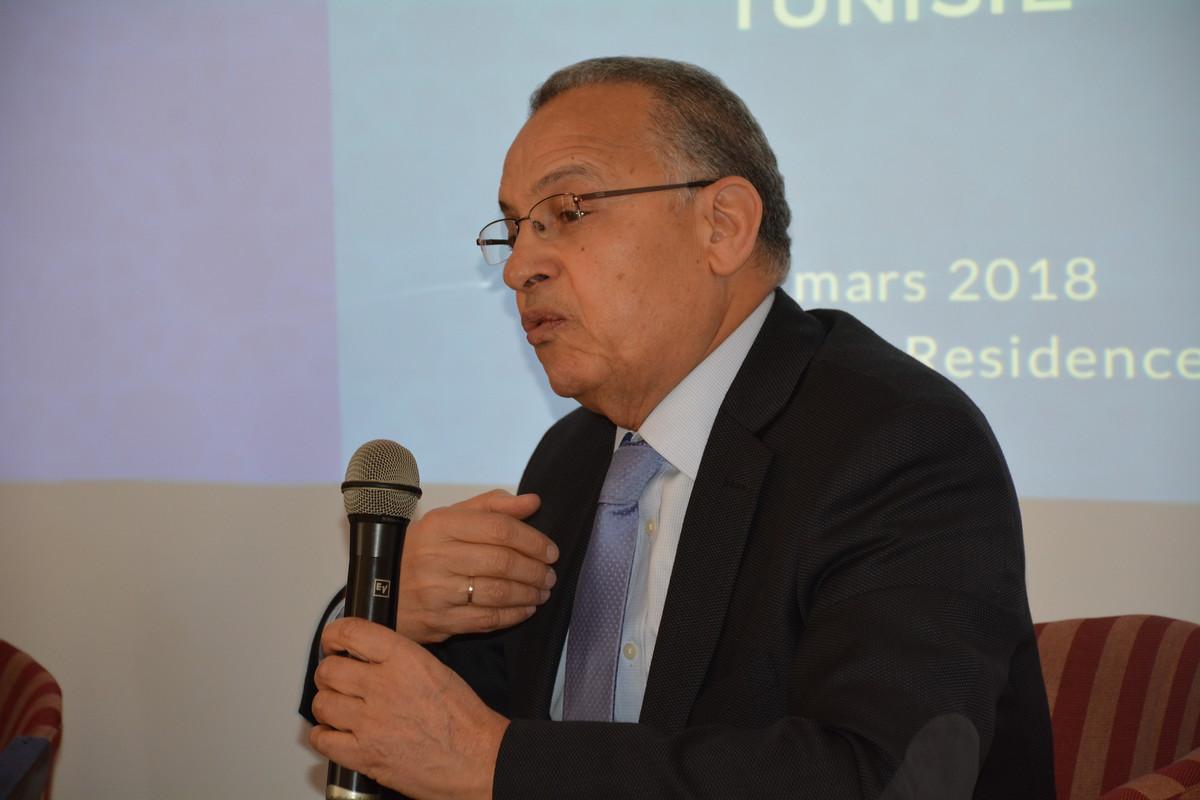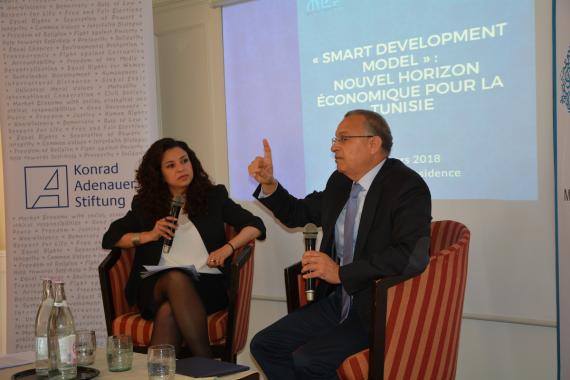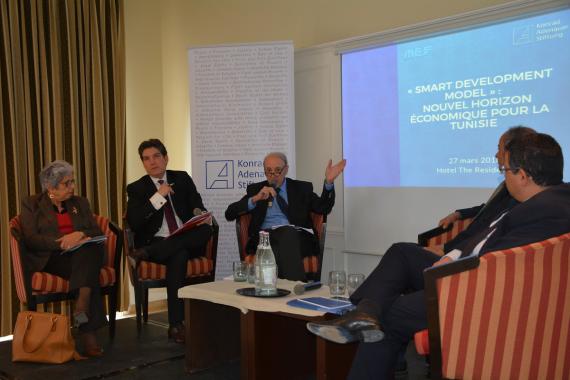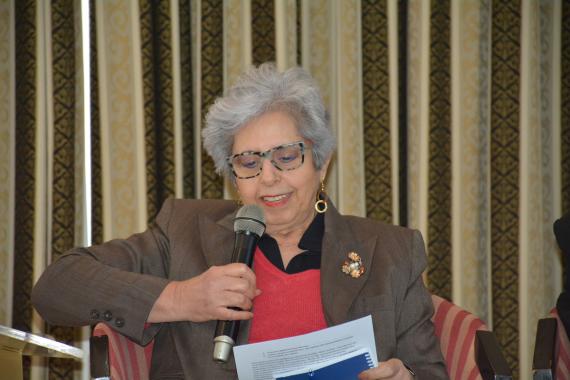The Maghreb region today stands at a strategic crossroad. Current levels of economic development and regional integration are stagnating. Regional tensions present a significant obstacle to the instigation of cooperation on common regional challenges and to the simulation of sustainable growth and development.
To stimulate discussion on the topic, the KAS Regional Program South Mediterranean, in partnership with the Maghreb Economic Forum (MEF), on 27 March 2018 organized an event to present the findings and recommendations of the study: “Smart Development Strategy for the Maghreb: Structural Reform, a New Role for the State, Regional Integration”. Authored by Hedi Larbi, former Minister of Economic Infrastructure and Sustainable Development and keynote speaker at the event, and Lars Christensen, Founder and Owner of Markets and Money Advisory, the study aims to provide concrete recommendations on structural reforms to stimulate potentials for economic growth and inclusive development.
Hedi Larbi’s presentation of the study placed a key emphasis on the word “reform”: economic development in the Maghreb requires thorough structural reforms aiming at the reorganization of economic infrastructures, and especially of the educational system. Within these prerogatives, the author stressed that the state ought to assume a dynamic role, wherein it encourages public debate on national challenges and its socio-economic role within society. Development policies ought to be designed for the benefit of the population and to stimulate private sector activity. He identified most of the current grievances as result of socio-political blockages, which have thwarted efforts at durable growth.
During the subsequent discussion, the invited experts highlighted that despite the existence of many draft legislations and reforms, none of these have been adequately implemented due to numerous institutional blockages, a weak application of the law and a lack of political will. Pointing to the absence of growth in the post-2010 era despite numerous attempts, the speakers stressed that the identification of erroneous root-problems and a general misdiagnosis of the situation have often led to ill-fitted solutions and poorly designed reforms.
The speakers furthermore highlighted that, in today’s global climate of uncertainty, the Maghreb region’s geo-strategic position makes it imperative that global and regional risks are addressed through enhanced inter-state cooperation. They touched upon the need to mitigate regional tensions on specific issues, such as that of Western Sahara, the Libyan conflict, and their impact on neighboring countries’ security and socio-political environment, and the general militarization of the Sahel region. Notably, creating a special economic zone of integration in North Africa could contribute to solving numerous issues relating to socio-economic development, which are common to these countries. However, according to some experts, instead of promoting the establishment of a resilient regional market, individual North African States so far have been more interested in forming bilateral agreements and furthering their partnerships with the EU. Moreover, reforms and development policies of individual states have mostly neutralized each other, if not implemented at the detriment of one another – which shows a clear lack of horizontal cooperation.
Amongst the areas which require the most significant transformation, the speakers identified quality educational reforms as fundamental in order to stimulate development. Furthermore, they emphasized that North African States must formulate long-term strategic approaches favorable to innovation and entrepreneurship, especially in terms of private sector capacity building, in parallel to the strengthening of institutional regulations. The importance of harnessing the momentous opportunities and potential that the digital revolution presents in order to further stimulate growth and productivity were also stressed.
Conclusive remarks highlighted that what matters for economic development is not the amount but the quality of growth; this encompasses the durability and resilience of growth, and the equitable distribution of wealth. These components are in turn unquestionably related to the application of a ‘good governance’ model in the region, which has, in turn, the potential to improve the quality of political and economic development in the long-term.










